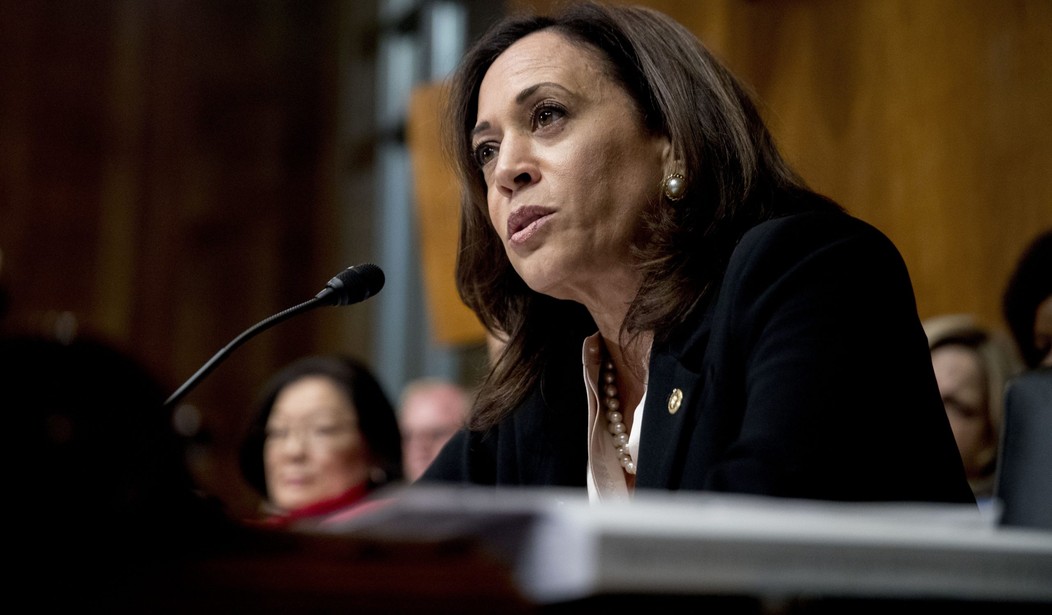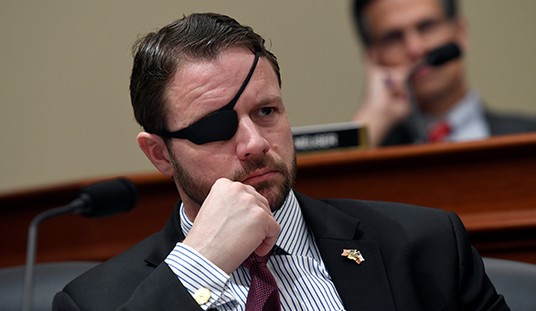On May 20, Sen. Kamala Harris (D-Calif.) released her “ambitious” plan to close the “Gender Pay Gap.” She attributed the statistical gap to sexism, and proposed an invasive and destructive government intrusion to “fix” the overblown and misunderstood problem. This would create more problems than it solves, making life more difficult for the very women Harris intends to help.
Rather than allowing men and women to work for employers at their desired wages in accordance with supply and demand, Harris would require businesses that hire more than 100 employees to earn an “Equal Pay Certification.”
“To receive the certification, companies must demonstrate they have eliminated pay disparities between women and men who are doing work of equal value. To the extent pay disparities do exist for similar jobs, companies will be required to show the gap is based on merit, performance, or seniority—not gender,” Harris’s plan explains. In applying for the certification, “companies will also be required to disclose their pay policies and align them with best-practice standards.”
Companies would also be “required to report statistics on the percentage of women in leadership positions and the percentage of women who are amongst the company’s top earners,” in order to fight “systemic pay discrimination.” Companies would also be “required to report the overall pay and total compensation gap that exists between men and women, regardless of job titles, experience, and performance. These statistics will be reported by employees’ race and ethnicity.”
The certification would be required within three years after her law is passed, and two years thereafter. Any employer that fails to obtain the certification will be fined 1 percent of the company’s average daily profits for every 1 percent gap that exists after “accounting for differences in job titles, experience, and performance.”
“We estimate the plan will generate roughly $180 billion over 10 years, with revenue decreasing over time as strong equal pay practices become part of corporate culture,” the plan reports.
Harris’ staff are no doubt very pleased with themselves. They have cobbled together a plan that would raise money through hefty fines, based on fighting supposed injustice against women and racial minorities. Score for Intersectionality!
Not only is this plan entirely unworkable, however, but it is based on false information and would harm the very people it is intended to help.
As Karen Lips, president of the Network of Enlightened Women, pointed out in The Hill, Harris is using a meaningless statistic to support her contention that women are not paid equal wages for equal work. The Bureau of Labor Statistics reported that women who were full-time wage and salary workers earned 81 percent in median weekly earnings compared to men in 2018. But that gap involves aggregate data — a comparison of the average man and woman workers, with no account taken for differences in types of work, hours, difficulty, region of the country, and more.
“This is not a good measure of equal pay because it doesn’t take into account workers’ labor choices, such as profession, education, hours worked, or many other work preferences — preferences that we should want people to be able to express and take into account when selecting work,” Lips wrote. “This statistic isn’t a signal of systematic sex discrimination in our economy.”
Yet the problem isn’t just the bad statistic. Lips warned that the costs “will be paid, in part, by working women.”
In 2017, the Trump administration decided not to move forward with an Obama administration rule requiring businesses to report pay data based on sex, race, and ethnicity. “Collecting and reporting the equal pay data would impose an annual burden of more than 1.8 million hours on filers, costing more than $53 million, according to an Equal Employment Opportunity Commission estimate. That’s money that would not be spent on raises or new hires,” Lips wrote.
“Harris’s plan also would extend the federal government further into employee-employer relations, giving the EEOC an incredible amount of power to reevaluate business decisions on pay. How will businesses prove pay differences aren’t based on gender? By submitting employee evaluations? There is something distasteful and dystopian about an economy where businesses must turn over employee evaluations and pay decisions for review by the federal government,” she added.
As National Review‘s Ryan Borne pointed out, “supply and demand matter too. If there are hundreds of applications for one post and none for another, then paying the same amount for the two jobs makes little sense.”
“Take workers who stock shelves in supermarkets and their warehouses. Shelf-stackers in both locations ostensibly do ‘the same job.’ If a supermarket chain gave them the same job title, and all other experience and performance were equal, this legislation would mandate that workers in both locations be paid the same. Yet it is plausible that working in a warehouse may simply be less pleasant than working in a supermarket, if the warehouse is colder or in a more isolated area or those who work there have less agreeable hours. If men have a greater willingness to accept these unpleasant conditions in return for the ‘compensating differential’ of higher pay, this again would show up as a pay gap, with the company being liable for fines under Harris’s legislation. Yet paying both sets of workers the same could create severe shortages of warehouse workers, or surpluses of supermarket employees,” Borne noted.
There are simply so many different reasons why people choose the kind of work they do. Attributing vast statistical differences to sex discrimination is not only wrong — it also creates perverse incentives. The women who often choose more flexible work environments in order to care for children may not have those options with the intrusive federal government mandating equal pay for equal work.
In a free market, employees and employers need to be free to make their own choices. There are a few problems in the current system, but enforcing equality through the heavy hand of government is no solution.
Follow Tyler O’Neil, the author of this article, on Twitter at @Tyler2ONeil.









Join the conversation as a VIP Member